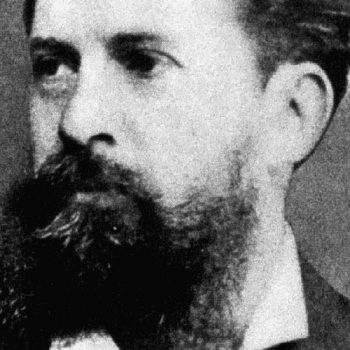There is a strong tendency to overlook process and to think we simply live in world full of separate things. We use nouns, which indicate some kind of stable entities — what in the philosophical tradition have been called “substances.” It’s quite normal to think of the world as a thing, filled with other things — rivers, mountains, lions, mosquitos, people, all sort of things. It’s also quite normal to think of these individual things that the world is filled with as distinct from other things, which they are not. The fish is not the river. It is in the river. The river is not the river valley. It flows through the valley. The valley is not the region. But it is a part of a region. Objects are parts of bigger objects still. Wholes are parts of other wholes.
It is indeed very natural for us to think in terms of such objects. Yet some philosophers have tried to orient us away from focusing so much on things and to guide us to think of processes as primary. The fish then is seen as a form of life only sustained through the eating of other fish and plant life, the absorption of minerals, whose habit is the healthy river, and whose well-being and even survival is dependent on the health of the river. The river is water in flow, but a healthy river needs water blockages in places, such as rocks and logs that create dams from which water overflows further into the river. These overflows add oxygen to the water, creating a healthier habitat for fish. Overflow into the flood plain is necessary for healthy rivers. There bacteria forms, which filter nitrates from the to nitrogen gas, which then is returned to the atmosphere. Without this filtering process, the nitrate levels of the river water also can become too high and fish in a lake into which a river feeds may become unhealthy and die. This process of overflow also creates ponds and puddles, which serve as habitat for various animals in the river valley. Where does the river stop and the river valley begin? The ponds and puddles were once a part of the river, later not, but a part of the river valley. How are these separable in any definitive sense? Ecosystems have fuzzy boundaries. The region, for it’s part, is also not just an area of some square miles or hectors (though we can draw one up that way for political purposes). But for the purposes of biology, a bioregion likewise has a fuzzy boundary. In a modern society, a region is characterized not only by the flora, fauna and geographical formations but by industry, flows of traffic, people who have moved to the region, and other things, all which influence the biodiversity of the area, the health of the river, and so on. Processes are involved at every step being described here. We cannot understand the things mentioned without understanding the processes in which they are involved. Process philosophers tend to emphasize these processes that interlink these various things; and they emphasize that the things themselves have fuzzy boundaries and are also characterized by their processes.
The focus on processes is rarer than the focus on stable things. But especially in light of our environmental concerns today, and the fundamental importance of understanding the intersection of biological and human processes in order to address those concerns, a focus on processes is vital.
In referring to process philosophy in this context, I am leaning on some ideas developed by Nicholas Rescher in Process Philosophy. A Survey of Basic Issues (U Pittsburg Press, 2000). But I am focusing on different figures than he does.
First of all, I want to underline the importance of adding various Eastern philosophers to the list of process thinkers, including Laozi and Buddha. Among Western philosophers, I will also emphasize some different thinkers than Rescher does. In addition to thinkers that Rescher mentions — of course, Alfred Whitehead, the 20th century American philosophers most clearly identified with the label of process philosophy, as well as Heraclitus, Henri Bergson, Charles Sanders Pierce and William James — I think it important to add Hegel and Marx, certain systems thinkers, as well as Giles Deleuze and Felix Guatarri, two important 20th century French philosophers. These thinkers too underline the important of systemic interactions, of process, of change.
All of these thinkers share at least the first four characteristics that Rescher views as basic tendencies of process thinkers. In Rescher’s words:
- Time and change are among the principle categories of metaphysical understanding.
- Process is a principle category of ontological description.
- Processes are more fundamental, or at any rate, not less fundamental than things for the purposes of ontological theory.
- Several, if not all, of the major elements of the ontological repertoire (God, nature as a whole, persons, material substances) are best understood in process terms.
- Contingency, emergence, novelty, and creativity are among the fundamental categories of metaphysical understanding. (5-6)
The final criteria is the one that some of the thinkers on my list are considered by some not to meet. Hegel and Marx are often read as not allowing contingency. Nonetheless, these thinkers, like Heraclitus and Laozi, and the others mentioned, focus on process as fundamental to understanding history, self, and much else. So there is good reason to include them. My focus for now though is on Heraclitus and Laozi, who we can view as original process thinkers.
Works cited
Rescher, Nicholas. 2000. Process Philosophy, A Survey of Basic Issues. Pittsburg: University of Pittsburg Press.
Schlesinger, Bill. June 7, 2016.“What Makes a Healthy Stream?” Translational Ecology. Citizen Scientist. Web. Access February 8, 2018.

